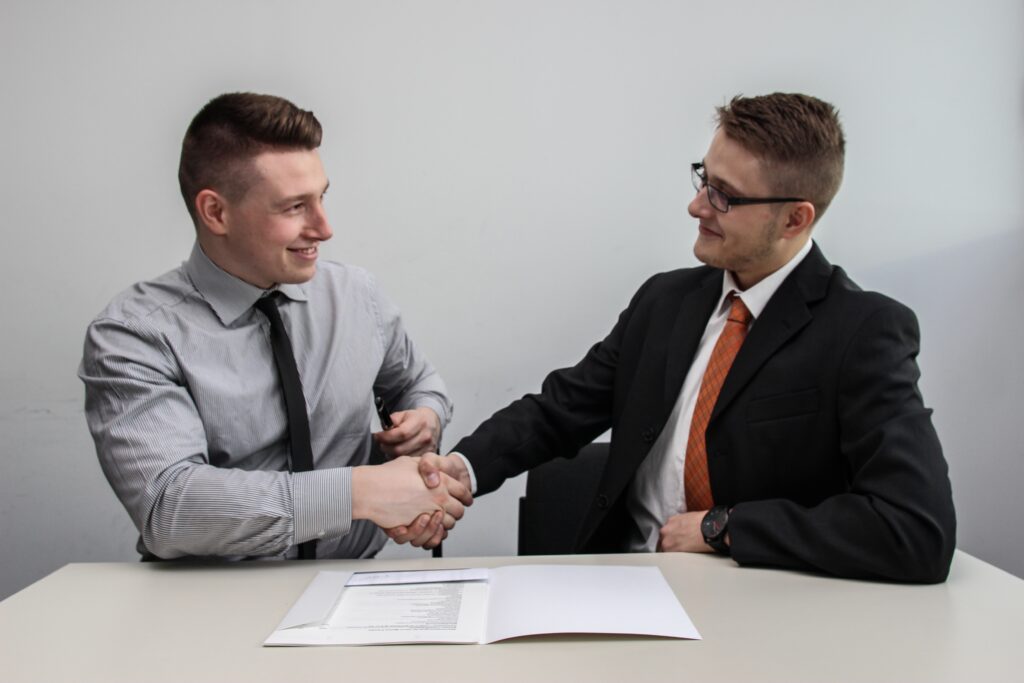When it comes to getting your dream job, we all know how difficult and tiresome the process can be. You may have spent weeks, or months, searching through job boards, speaking to recruitment consultants, and working through online tests.
However, after all of this, you may fail in securing the prized role in the face-to-face interview. Even after all your hard work you can fall short in the interview for a number of reasons, be that a lack of company knowledge, poor communication skills or simply the way you highlight your accomplishments.
Lots of the time interviewees think this is due to nerves or a lack of experience, but there is normally one culprit: poor interview preparation. To increase your chances of landing that dream job and taking a step up in your career, here is your essential guide to interview preparation.
Research the company
One of the biggest deal-breakers for hiring managers is when candidates are invited to interview but know very little about the company or the position they’ve applied for. Spend at least an hour on the employer’s website learning about the organisation.
The ‘About Us’ section is useful to see the mission of the company and their core values – use this to see whether you are a good match. There may be a recruitment section that tells you about the type of people they’re looking for so consider tailoring your answers to incorporate these attributes.
Make sure you carefully research the company website before the interview, particularly the About Us section.
Find out about the industry as well, especially if it’s a different industry to your current one. Keep up-to-date with the news in case there have been any big stories in the industry as you may be asked about this, for example, you may be applying for a job in psychology and two days before the interview the news may report on a study highlighting the high percentage of older adults suffering from mental health problems.
You may be asked, for instance, how you can make this demographic aware of the help your organisation can offer.
Also, someone in your network may work or have worked where you are interviewing for so talk to them – this could give you the advantage over the other candidates.
Go over your CV / Resume
Study your CV very carefully because you may be asked a question based on what you’ve written. If you answer incorrectly the employer may think that you’re not credible and they may not trust you. Ensure that you also re-read your CV just before your interview so it’s fresh in your mind and you feel confident.
Find out as much as possible about your interview
Ensure that you know the format of the interview and the number of interviewers. You’re reducing what you’re most afraid of – the unknown, so you’ll feel more relaxed.
Also, the planning won’t differ significantly but there are small things you can now prepare for, for example, if you know you’re getting interviewed by three people rather than one person, it would be beneficial to practice looking at the person who asked the question when you answer because when you’re nervous you may try looking at all of the interviewers. If you have the facts beforehand you can prepare aptly and practice.
If you are given the name of the person interviewing you, look them up on LinkedIn (although it’s probably best to do this when you’ve signed out so that they can’t see you viewed their profile). This will give you an idea of their work history and you’ll be able to see if you have anything in common, such as studying at the same college, for example.
You can then incorporate your commonality into your interview so that you can make a stronger connection with your interviewer. Remember during your job interview preparation that your success is also partly based on whether the interviewer would like to work with you.
Plan ahead for the interview
Job interview preparation isn’t just about the interview itself, it’s about getting you in the right mindset too. Interviews are stressful enough for most people so ensure that you organise what you need to the day before.
Plan your journey to the interview location and factor in an extra half an hour for traffic or delayed public transport. Find a coffee shop beforehand so you know where to go if you arrive too early – you’ll feel less nervous sitting in a cafe than in your interview’s venue.
Plan your outfit at least the day before to ensure you have clean, pressed, clothes to wear. Your outfit should be professional, comfortable and make you feel confident.
Tips for what to wear
Women
- Suit with skirt or pants (regardless of company dress code, take the conservative approach)
- Knee-length skirts are typically appropriate
- Stick to dark colour schemes, no loud colours
- Understated makeup and nail polish
- Limit jewellery and accessories
- Neat, conservative hairstyle
Men
- Wear a suit (even if typical company dress code is more casual)
- Matching dress suit and trousers
- Tie
- Dress shirt
- Dark socks and polished shoes
- Neat and tidy hairstyle
Bring these to the interview
Bring:
- Copies of your CV – even if the interviewers have their own copies it at least shows that you’re prepared and are taking this seriously.
- Examples of your work if possible – this is specific to the industry.
- Notebook and pen – you may want to make notes during the interview about important points, such as key features about the role. It will show that you’re interested and motivated. It’s also a useful technique to control your body language if this is something you struggle with.
Coping with nerves
It is completely natural that you will get nervous during an interview for a role that you are particularly passionate about. This is to be expected, and hiring managers will understand minor nerves, but it is always best to try and compose yourself as much as possible and come across as strong and confident when meeting with them.
To help you hide those nerves and display the best possible image, here are some interview tips to help you:
- Choose to stand, instead of sitting, while you wait in the interview room, this means you are prepared and look more in control when the interviewer comes to meet you.
- Take deep breaths before entering the room as a means to calm yourself and control your breathing.
- Just before the interview, open your mouth, stick your tongue out as far as possible, and speak your favourite nursery rhyme. This technique helps open up your throat and allows you to speak more clearly and more confidently.
- To overcome any shaking, squeeze your buttocks tight together while sitting.
- Sit slightly forward in your chair, this makes you come across as more confident and helps stop your throat from closing up.
- Showing your hands at all times is seen by our subconscious as a sign of honesty, and it also helps stop you from fidgeting.
- Listen clearly before answering any questions so as to help avoid any awkward silences and responses.
- Finally, speak slowly and clearly to the interviewer and show that you are in control of yourself.
- Avoiding consuming too much caffeine beforehand as this is a stimulant and can leave you feeling more nervous and shaky.
Practice the interview
Practicing is the best way to prepare for an interview. When you feel confident in your question and answer preparation, conduct interviews in same format as the real interview, for example, if it’s a phone interview then get your friend to call you. It’s useful to give your practice interviewers the job description so they can create more authentic and realistic questions.
Practicing your body language is also very important because when we get nervous we tend to engage in our personal nervous behaviours. Firstly, detect what nervous behaviours you engage in – feedback from practices will helps with this and so would filming yourself during interview practice.
Practice:
- Smiling
- Having an open body language e.g. not crossing your arms
- Avoiding slouching or sitting stiffly
- Laying your hands in your lap
- Speaking to and maintaining eye contact with the interviewer that asked you the question
- Shutting down your nervous behaviours when you notice you’re engaging in them, such as, fidgeting
- Using your arms and hands to occasionally gesture for emphasis
After the interview
Following up with email
Good interview etiquette means waiting between 24 to 48 hours before sending post-interview correspondence. A common way of doing this is via email, or alternatively any other form of communication they gave you. Ideally, you want to contact every person who interviewed you and briefly thank them for their time and reiterate exactly why you are perfect for the role.
Keeping the message to the point is crucial so don’t waffle about why you love the company and how much you enjoyed meeting them. Instead, clearly identify what it is that you possess that will benefit the company and why you are different to everyone else they have interviewed. This brief yet concise email will help keep you fresh in their minds when they make their decision and also give them points by which to discuss your case for working for them.
How long will you have to wait?
This will vary greatly depending on the role you are applying for, what stage of the interview process you are at, and how many people they need to interview for the position. Hopefully, the interviewer will give you some indication of how long you will have to wait and, if you feel you have built up enough rapport in your meeting, you can even ask at the end whether they require anything else from you and when you can expect to hear from them.
Really, it all comes down to patience and knowing you did everything you could on the day of the interview.
Second interview
After the interview you may be asked to attend a second interview so prepare for it in the same way but additionally:
- Ask for feedback from your first interview as this will give you suggestions on improvements.
- Go into more depth when researching the company and prepare examples of how you think you can help the company.
The more prepared you are for an interview the more likely it’ll lead to a positive outcome. If you don’t get the job, ask for feedback and see what improvements you can make for the next interview.
Try to look at the value of this rather than the negativity – interviewing is a skill in which real-life practice is needed to develop it so treat each interview as an opportunity to refine this skill regardless of whether you get the job or not.




